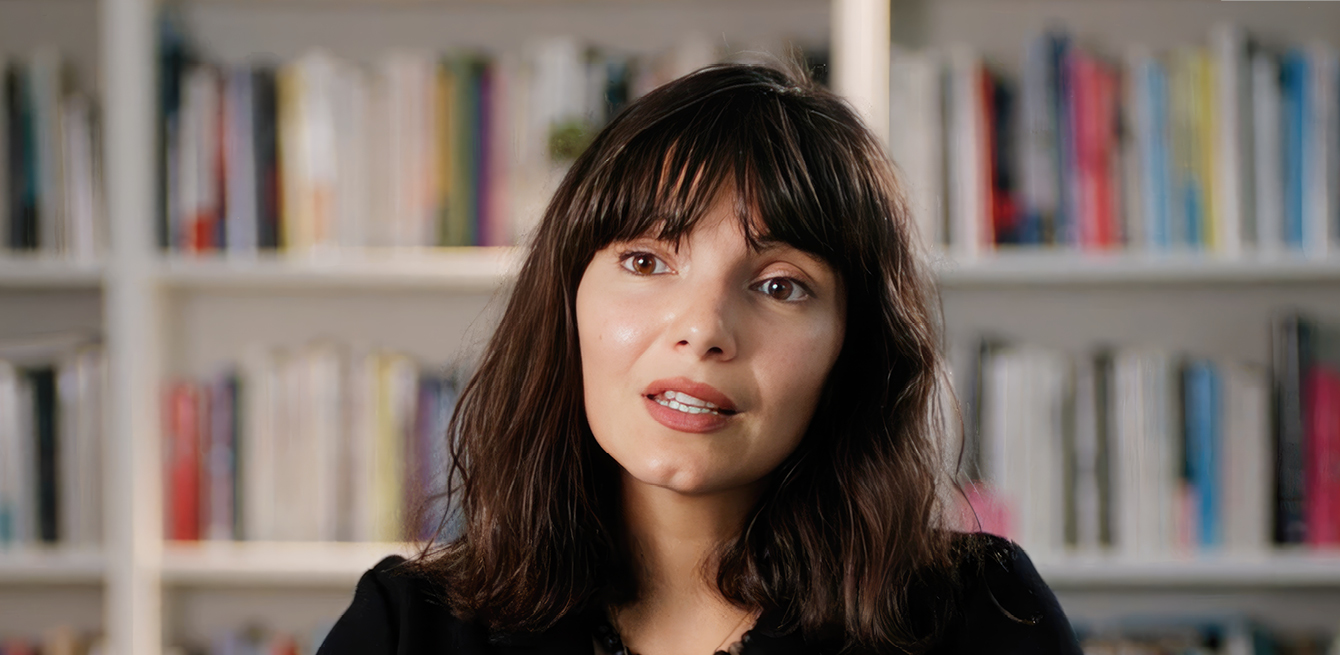
This doctor of neuroscience believes that talent is not an innate ability. She calls into question the entire system of meritocracy.
A healthy dose of talent, hard work and unfailing willpower. That is the seemingly unbeatable recipe behind the success of a chosen few, who we gaze upon with admiration. But referring to a “magic ingredient” to explain why some fail and others succeed holds terrible social consequences and deepens inequalities, as neuroscientist Samah Karaki warns us in her latest book. In Vivo met with her for an interview.
samah karaki / The “hard” sciences and “soft” sciences (human and social sciences) contrast in their methodologies and view of phenomena such as human skills and learning. That’s why it’s important to take a multidisciplinary approach. Social justice, as I see it, is not purely about morality. It’s objective and quantifiable, through statistics. The scientific method can be applied for an objective measure of social phenomena.
sk / Talent is part of the merit equation. In other words, we derive our worth from our talent and the efforts that have gone into developing it to the fullest, from our moral traits such as perseverance, courage and willpower. We tend to believe that talent is drawn from a potential that flourishes individually. At the same time, we know that stress directly affects our ability to learn, concentrate, memorise and manage our mental load. From a broader point of view, individuals who carry the heaviest mental loads are not realising their potential equally. The psychological stress that we experience shapes what we produce. Our health is directly related to our living conditions.
sk / Talent is a notion used to explain, in a simple way, why we have differences in ability and speed when using our skills. They are chalked up to individual differences that are biological in origin. This linear explanation appeases us, because it covers up all the complex factors that shape our abilities in the end. We accept it as we would a natural phenomenon: “This person succeeds because they are talented” is easier to accept than “this person succeeds because they have privileges that others don’t”. The notion is thus used to legitimise social inequalities and create an illusion of objectivity. Our attachment to talent is a manifestation of our desire to touch the extraordinary, to bring magic into our ordinary lives.
sk / Psychological needs such as recognition, control and belonging influence the brain in the same way as physical stress. Epidemiologist Richard Wilkinson has shown that the higher the threat to our social status, the greater the risk of contracting diabetes and cardiovascular disease, diseases that are more common among the working classes. We need to put an end to this biologising view of social inequality that turns it into a political and social issue.
sk / Our brains are not isolated organs, cut off from the world. They are social and emotional organs. We are shaped by the people we meet, life’s surprises and the emotions we experience. The brain is the image of the life we lead. Being socially excluded, not feeling loved for who we are, or living with uncertainty, all produce a mental load that our biology interprets as a physical attack. In healthcare, for example, if we give a patient agency to choose their treatment or how medication is administered, that individual experiences pain as less significant. Even our pain is subjective and influenced by psychological threats. Medical care is not just medical but also psychological and social. There is no barrier between what we experience psychologically and what we experience in our body biologically.
sk / We can assume that we are rational beings and that all we have to do is to think in order to be. Our Cartesian heritage gives us the illusion that our choices stem from our will. However, we have very limited attentional and decision-making abilities. Neuroscience has shown that our decisions are automatic, intuitive and emotional, and afterwards rationalised. Our decision-making is mainly tied to our environment. The means precede the will. This doesn’t mean that we don’t have individual responsibility, but we must be realistic and admit with humility that we’re not as free as we would like to think we are. This can bring new awareness about the way we decide to create other types of environments that are better equipped to bring out our fullest potential.
sk / Hard work is obviously necessary; nothing happens without force. But it has to be placed within a given strategy and system. We don’t all start with the same level of skills, stress and social status. Cultural and financial baggage plays a huge role in the knowledge that children gain in their school performance. There is no linear relationship between the amount of work and a successful outcome. Not all hours are treated equally. Market law values certain professions over others, as in the case of healthcare providers, who don’t count the hours they put in.
sk / Our school system values certain types of skills, in this case logical and mathematical, that can be measured with tests. We’re so attached, even obsessed, with these skills that we consider them to be human intelligence. But there are other forms of intelligence, which may take longer to show up, but that schools do not value. We can also see that certain privileged social classes want to stand out by finding new indicators. Shouldn’t we instead be thinking about creating a school system that is adapted to different forms of intelligence?
sk / It’s not fatalistic to say that we have little room for action if this realisation is followed by reflection and action. How can we rethink our structures to build a fairer society? Starting with individual experience by thinking collectively is the best way to advance knowledge and human rights. /